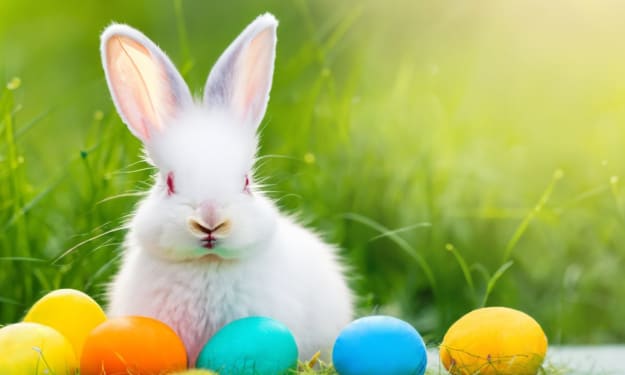What Plants are Safe for Rabbits?
Creating a Pet-Friendly Home

Introduction to Rabbit-Safe Indoor Plants
If you own a pet rabbit, you may be wondering which plants are safe for them inside your home. You want to create a pet-friendly home that will not only keep your furry friend safe but also healthy and happy. Rabbit-safe indoor plants can be a great way to rabbit-proof your home and provide an enriching environment for your bunny. There are many varieties of plants that can be safe options for rabbits because they are non-toxic and some even have natural benefits.
Before introducing any new plant into your rabbit’s environment, it is important to research thoroughly as not all plants may be suitable for rabbits. Some types of plants may contain toxins that could be harmful to your bunny if ingested or simply cause discomfort due to their physical nature (e.g., sharp thorns). Here are some of the best rabbit-safe indoor plants that you can consider adding to your pet’s living space:
Herbs
Herbs such as oregano, parsley, mint, thyme, and basil are not only great for cooking, but they also make great additions to a pet-friendly home. These herbs are non-toxic and provide some nutritional benefits as well as stimulation for rabbits.
Succulents
Succulents come in a variety of shapes and sizes and require little maintenance. Because they are generally pest-resistant, succulents create a low-maintenance environment for rabbits that is both visually pleasing and safe.
Grasses
Grasses such as wheatgrass and rye grasses provide valuable nutrients such as Vitamin A, Vitamin K and calcium – these nutrients help promote bone health in rabbits. These grasses also help stimulate their natural grazing behavior while providing them with necessary vitamins and minerals necessary for their overall health.
Fruits & Vegetables
Rabbits love fruit so introducing some fruit trees or berry bushes into your pet's living space can provide them with essential vitamins as well as mental stimulation from the flavors found in fruits like apples, pears, strawberries or blueberries. Vegetables such as carrots, broccoli or cabbage leaves are also good options but should only be given on an occasional basis due to their higher sugar content which can lead to obesity in bunnies if not monitored carefully.
In conclusion, when creating a pet-friendly home there are several rabbit-safe indoor plants you should consider incorporating into your bunny’s environment. Herbs provide nutritional benefits while succulents require little maintenance; both grasses and fruits & vegetables help stimulate natural behaviors while providing essential vitamins & minerals needed for overall health in bunnies. With careful research on each type of plant beforehand you can rest assured knowing you have created an enriching environment with plenty of rabbit-safe options!
Benefits of Having Rabbit-Safe Plants in the Home
Creating a pet-friendly home can be difficult. It is important to remember that many plants can be toxic for rabbits, and certain precautions must be taken when having them living with pets. Rabbit-safe indoor plants are an excellent way to rabbit-proof your home and ensure your furry friend's safety while still adding some greenery and freshness to your space. There are a few considerations to take into account when choosing plants for a rabbit-friendly home. First, it is essential to make sure that the plant you choose is non-toxic for rabbits.
Some popular houseplants such as ferns, pothos, peace lilies, and many succulents are perfectly safe for rabbits if they are not treated with pesticides or other chemicals. You should also consider if the plant requires high levels of humidity or regular misting, as this may stress out bunnies and disrupt their environment. It is also important to think about the size of the plant you are looking at – large plants or ones that grow quickly can present a choking hazard for curious bunnies!
On the flip side, smaller plants might not look as impressive but could provide great hiding spots for bunnies who love snuggly nooks! Finally, check that the soil used in your planter does not contain substances that could be toxic or dangerous for your pet rabbit – you want to create a safe space where they can explore without worrying about any potential health risks.
Adding rabbit-safe indoor plants to your home can provide numerous benefits. Not only will these brighten up any room, but they will also help with air quality and purification in addition to being pet friendly. Green foliage adds life and vibrancy to any living space while still providing a safe place for your fluffball friends! Rabbit safe indoor plants also offer an opportunity for activity – bunnies love exploring new spaces filled with interesting smells and textures.
Types of Rabbit-Safe Indoor Plants
Rabbits are curious creatures, and they can easily get into places you don't want them to go. When rabbit-proofing your home, it is important to know which plants are safe and which ones are not. To create a pet-friendly home that is also safe for your rabbit, consider these types of rabbit-safe indoor plants.
Fruits and Vegetables
Garden fruits and vegetables such as apples, pears, cucumbers, squash, carrots, spinach, lettuces, and celery are all perfectly safe for your rabbit to nibble on. While these items may be costly to buy at the grocery store if they aren’t in season in your garden, rabbits love them so it is well worth the investment.
Herbs
Rabbits enjoy the taste of fresh herbs like parsley, basil, sage, mints (peppermint and spearmint), oregano, thyme and dill. By growing a variety of these herbs indoors or in a sheltered outdoor space that is free from predators or weather damage (such as under an eaves) you can provide an enticing snack for your pet rabbit while supplying fresh ingredients for yourself too!
Trees & Shrubs
Most trees and shrubs are safe for rabbits to eat although some species will be toxic when ingested in large quantities - such as boxwood or yew. If you have any concerns about toxicity it is best to check with the plant’s supplier before planting near a rabbit habitat. Commonly grown trees like apple or cherry trees can provide shade during hot summers while also providing snacks during the warm months when fruit is ripe enough to eat! Additionally many shrubs are edible if you do not intend on using them in the landscape including rhododendron species and rose bushes which can provide lasting foliage for your pet rabbit's mealtime enjoyment.
Flowering Plants
Many flowers are edible or at least non-toxic - hibiscus (both flowers and leaves), nasturtiums (leaves only), pansy blossoms (whole flower) as well as daisies (just the white petals). Not only do flowering plants add colour and beauty to any interior space but rabbits also enjoy tasting these blooms too! Be sure to check with professional advice if you intend on feeding any part of a flower off its stem - even if it seems harmless - just in case there could be hidden toxins present.
When creating a pet-friendly home that is also safe for our beloved furry friends we must ensure that we select the right plants for their consumption. Fortunately there are plenty of options available including both fruits and vegetables as well as other common houseplants which can provide nutrition while filling our homes with colour and beauty too! With careful consideration we can find the perfect combination of plants that will create an environment where everyone feels welcome - even our four legged friends!
How to Care for Rabbit-Safe Indoor Plants
When it comes to creating a pet-friendly home, you need to make sure that any plants you have won’t be harmful to your pets. This is especially true for rabbits, as they are known to be curious and like to nibble on things they find interesting. In order to protect them from any potential harms, it is important to choose rabbit-safe indoor plants when rabbit-proofing your home.
Identify Non-Toxic Plants
The first step in choosing the right plants for your rabbit is identifying which ones are non-toxic. Common houseplants such as spider plants, pothos, philodendrons, and peace lilies are all safe for rabbits. You can find a comprehensive list of non-toxic houseplants on the House Rabbit Society website. It is important to remember not all plants listed as non-toxic may be safe for your particular rabbit. This is because some rabbits may have different sensitivities than others and react differently when exposed to certain substances found in some plant species.
Choose Easy To Clean Plants
When selecting a plant for a pet friendly home, consider how easy it will be clean up after. Rabbits tend to be messy eaters so having plants that are easy and convenient to clean up after will make life much easier in the long run. Succulents are great options as they require minimal care and don’t require much water or maintenance. They also come in various sizes so you can pick one that best fits your space needs. Other options include air plants or cacti which also don’t require too much care but can still provide a beautiful addition to your home décor.
Watch Out For Thorns & Spines
When picking out a plant for a pet friendly home, it's important to watch out for ones that have thorns or spines as they could cause injury or discomfort if ingested by your rabbit. Some popular houseplants like aloe vera and cacti have sharp spikes which might harm your bunny if eaten so it’s best avoiding these ones completely if possible. It’s also important avoid any plant that has been treated with pesticides or other chemicals as these might cause harm if ingested by your bunny or even cause skin irritation when touched by their fur.
Conclusion
When creating a pet-friendly home, choosing the right type of indoor plants is key in protecting your rabbit from potential harm while still enjoying the benefits of having beautiful greenery around the house without sacrificing style or convenience. By carefully identifying non-toxic species of indoor plants, choosing easy-to-clean options, and avoiding those with thorns or spines, you can create an inviting environment both you and your pet will love!
Bringing a pet rabbit into your home is a major decision, and it requires taking the necessary steps to make sure your home is pet-friendly. Rabbits are curious creatures and will nibble on most things, so it's important to have plants that are safe for rabbits inside your home. Given the variety of rabbit-safe plants available, you can easily design an attractive, pet-safe interior that you and your bunny can enjoy together. When selecting plants for a rabbit-friendly home, consider whether the species is safe for rabbits to consume, as well as how difficult it is to keep out of reach. While there are many options that meet these criteria, some of the best choices include aloe vera, cat grass, lavender, rosemary, and chamomile.
About the Creator
Hasan
Welcome...
In this site of mine you can learn amazing things and many information that you don't know so please subscribe to my site.
Enjoyed the story? Support the Creator.
Subscribe for free to receive all their stories in your feed. You could also pledge your support or give them a one-off tip, letting them know you appreciate their work.






Comments
There are no comments for this story
Be the first to respond and start the conversation.